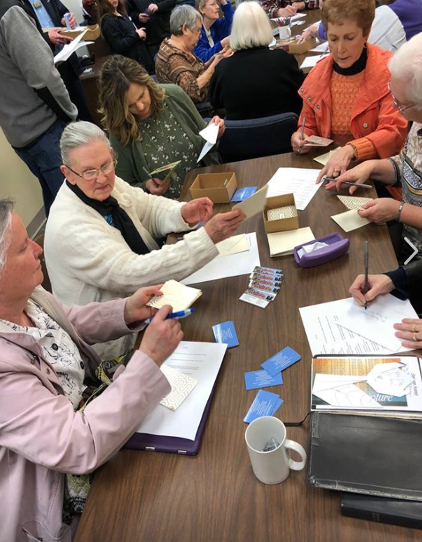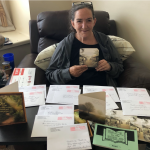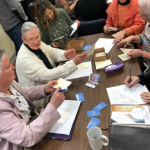1. Divide the congregation into groups (perhaps use visitation teams already in place or create new evangelism teams). Every family should be included.
2. Each group has a team leader who is responsible for ensuring that everyone has access to all materials, selecting the appropriate place to prepare cards, and ensuring that the cards get mailed. Cards and stamps are provided by the church.
3. The contact list is the heart of the program. This list is provided each Lord’s Day by the church office. It is primarily composed of local people who are potential prospects, new converts, or members. Normally these individuals are sick, need encouragement, or have lost a loved one.
4. Each Sunday evening, before or after worship one group meets for about 30 minutes to write cards. The team leader explains how it works to new members. He can give updates, additional information, and delete someone from the list as needed.
5. Each contact list has a box beside each name. If the team leader selects “single,” that means the person receives one card with all the team signing it. If the team leader selects “multiple,” that means the person receives a card from each person on the team with brief personal notes. It is a powerful display of love when a person in the local community receives dozens of cards from the local church of Christ. It is a great way to gain “the favor with all the people” (Acts 2:47).
6. If personal visits are needed or food is to be provided, the team leader will organize these efforts. He makes sure someone does not receive too much or too little attention.
7. Each contact should receive cards for at least four weeks. If someone on the list has an extended illness, change from sending multiple cards to a single card with multiple signatures.
8. You can also include delinquent members, erring brethren, or members who need encouragement. When Christians are placed on the list, you can use single cards with multiple signatures.
9. The purpose of this work is to cultivate contacts for Bible study prospects. Recipients are touched by expressions of love and concern, and they will become more open for a visit from a church member. Who would say “no” to a knock on the door from a congregation that has sent 50 cards over four weeks? Ministries that cultivate the soil only work when we work them.
10. Be persistent and pray. Just because you send cards does not mean that contacts will run to the building.
Remember people do not care how much you know until they know of how much you care. Jude said, “Of some have compassion, making a difference (Jude 1:22). The Compassion Card ministry is designed to make a difference. If you want to know how to get our custom made “Compassion Cards” please contact us for ordering information.
In His Service,
Rob Whitacre, Director HTHSOE







Recent Comments